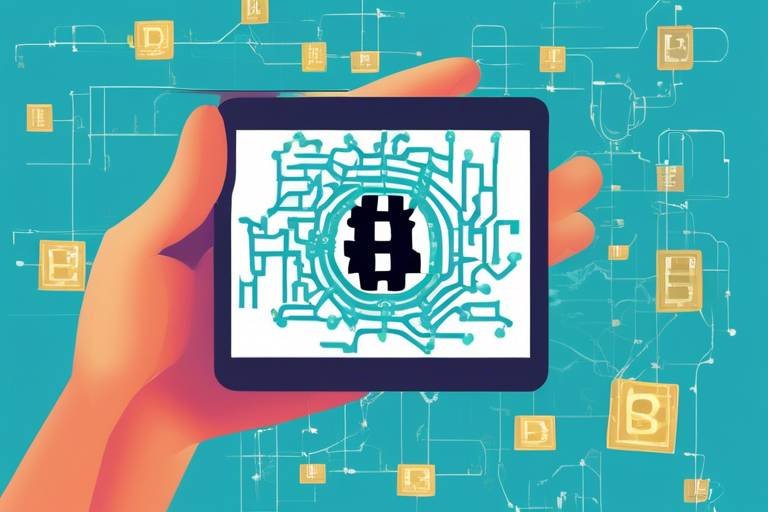Understanding the Principles of Decentralization in Blockchain
In today's digital age, the term decentralization has become synonymous with the revolutionary technology known as blockchain. But what does it really mean? At its core, decentralization refers to the distribution of authority and control away from a central entity. Imagine a world where power isn't concentrated in the hands of a few, but instead, is shared among many. This is the promise of decentralization, and it stands in stark contrast to traditional centralized systems where a single entity holds the reins. In this article, we will explore the fundamental concepts of decentralization within blockchain technology, examining its significance, benefits, challenges, and its profound impact on various sectors. Ultimately, we’ll reveal how decentralization is reshaping traditional systems and paving the way for a more equitable future.
Decentralization is not just a buzzword; it’s a fundamental shift in how we think about control and authority. In a centralized system, a single entity—like a bank or a government—holds all the power and makes decisions on behalf of the users. This can lead to inefficiencies, lack of transparency, and even corruption. On the other hand, decentralized systems distribute power among all participants. In the context of blockchain, this means that no single party has complete control over the entire network. Instead, every participant (or node) has a say, which fosters a sense of community and shared responsibility.
To better understand this concept, let’s consider the analogy of a traditional library versus a decentralized digital library. In a centralized library, a librarian controls what books are available, and users must rely on that authority for access. Conversely, a decentralized digital library allows users to contribute, share, and access information freely, with no single point of control. This shift can lead to a more vibrant and diverse ecosystem, where knowledge and resources are shared openly and equitably.
Decentralization is not just about spreading power; it brings a host of benefits that enhance the overall user experience. Here are some key advantages:
- Enhanced Security: By distributing data across multiple nodes, blockchain minimizes the risk of data breaches and cyberattacks, ensuring greater protection for users.
- Increased Transparency: Transactions are recorded on a public ledger, allowing anyone to verify and audit them, which builds trust among users.
- Improved User Control: Users have greater control over their data and transactions, shifting the power dynamics in their favor.
These benefits not only empower individuals but also create a more robust and resilient system that can withstand various challenges.
One of the standout benefits of decentralization is enhanced security. Traditional centralized systems are often vulnerable to attacks because they have a single point of failure. If a hacker breaches the system, they can access vast amounts of sensitive information. However, in a decentralized network, data is distributed across multiple nodes, making it significantly more challenging for malicious actors to compromise the system. This distributed nature acts as a fortress, ensuring that even if one node is attacked, the integrity of the overall network remains intact.
Decentralization plays a crucial role in maintaining data integrity. In a centralized system, data can be easily altered or manipulated by those in control. However, blockchain technology ensures that once data is recorded, it cannot be tampered with. This is achieved through cryptographic hashing and consensus mechanisms, which make it nearly impossible for anyone to change the information without the consensus of the majority. This tamper-proof nature of blockchain fosters trust and reliability, making it a game-changer in various applications.
Decentralized systems are inherently more resilient against attacks compared to their centralized counterparts. The distributed architecture means that there is no single point of failure, making it difficult for attackers to disrupt the entire network. Instead of taking down one server, they would have to target multiple nodes simultaneously, which is a daunting task. This resilience not only enhances security but also ensures continuous operation even in the face of adverse conditions.
Decentralization empowers users in a way that traditional systems often fail to do. By granting users greater control over their data and transactions, blockchain technology shifts power dynamics significantly. Users are no longer at the mercy of centralized authorities; instead, they can make decisions about their assets and privacy. This newfound autonomy is akin to giving individuals the keys to their own digital vaults, allowing them to manage their resources without intermediaries. As a result, users can engage in transactions with confidence, knowing that they retain control over their information.
While the benefits of decentralization are compelling, it’s essential to acknowledge the challenges that come with it. Scalability issues and governance complexities are two significant hurdles that need to be addressed for widespread adoption.
Scalability remains a significant concern for decentralized networks. As more users join the network and transaction volumes increase, the system can become congested, leading to slower processing times and higher fees. Current blockchain solutions are continually evolving to enhance transaction throughput and efficiency, but finding the right balance between decentralization and scalability is a complex challenge that developers are actively working to solve.
Decentralized systems often face governance challenges, as decision-making can become fragmented. Without a central authority, establishing effective governance models is crucial for maintaining order and ensuring that the network operates smoothly. This complexity can lead to disagreements among participants, making it essential to create frameworks that facilitate collaboration and consensus.
Smart contracts are a pivotal aspect of blockchain technology. These self-executing agreements have their terms directly written into code, allowing for automated and trustless transactions. They eliminate the need for intermediaries, reducing costs and increasing efficiency. By automating processes, smart contracts enable decentralized applications (dApps) to function seamlessly, paving the way for innovative solutions across various industries.
Different sectors, including finance, healthcare, and supply chain, are exploring decentralization through blockchain. This transformative potential can lead to increased efficiency, transparency, and accountability. For instance, in decentralized finance (DeFi), users can access financial services without intermediaries, while in supply chain management, blockchain enhances traceability and reduces fraud. The implications of decentralization are vast, and as more industries adopt this technology, we can expect to see significant changes in how they operate.
Decentralized Finance (DeFi) is revolutionizing traditional financial systems by removing intermediaries. By enabling peer-to-peer transactions, DeFi platforms empower users and increase access to financial services. This shift not only democratizes finance but also opens up new opportunities for innovation and growth.
Blockchain technology enhances transparency and traceability in supply chains. By providing a decentralized ledger of all transactions, stakeholders can verify the origin and journey of products, improving accountability and reducing fraud. This level of transparency not only builds trust among consumers but also streamlines operations, making supply chains more efficient.
Q: What is decentralization in blockchain?
A: Decentralization in blockchain refers to the distribution of control and authority across a network, allowing users to participate without relying on a central entity.
Q: What are the benefits of decentralization?
A: Benefits include enhanced security, increased transparency, and improved user control over data and transactions.
Q: What challenges does decentralization face?
A: Key challenges include scalability issues and governance complexities that can hinder widespread adoption.
Q: How do smart contracts work?
A: Smart contracts are self-executing agreements coded into the blockchain, automating processes and eliminating the need for intermediaries.
Q: How is decentralization impacting various industries?
A: Decentralization is transforming industries like finance and supply chain by enhancing efficiency, transparency, and user empowerment.
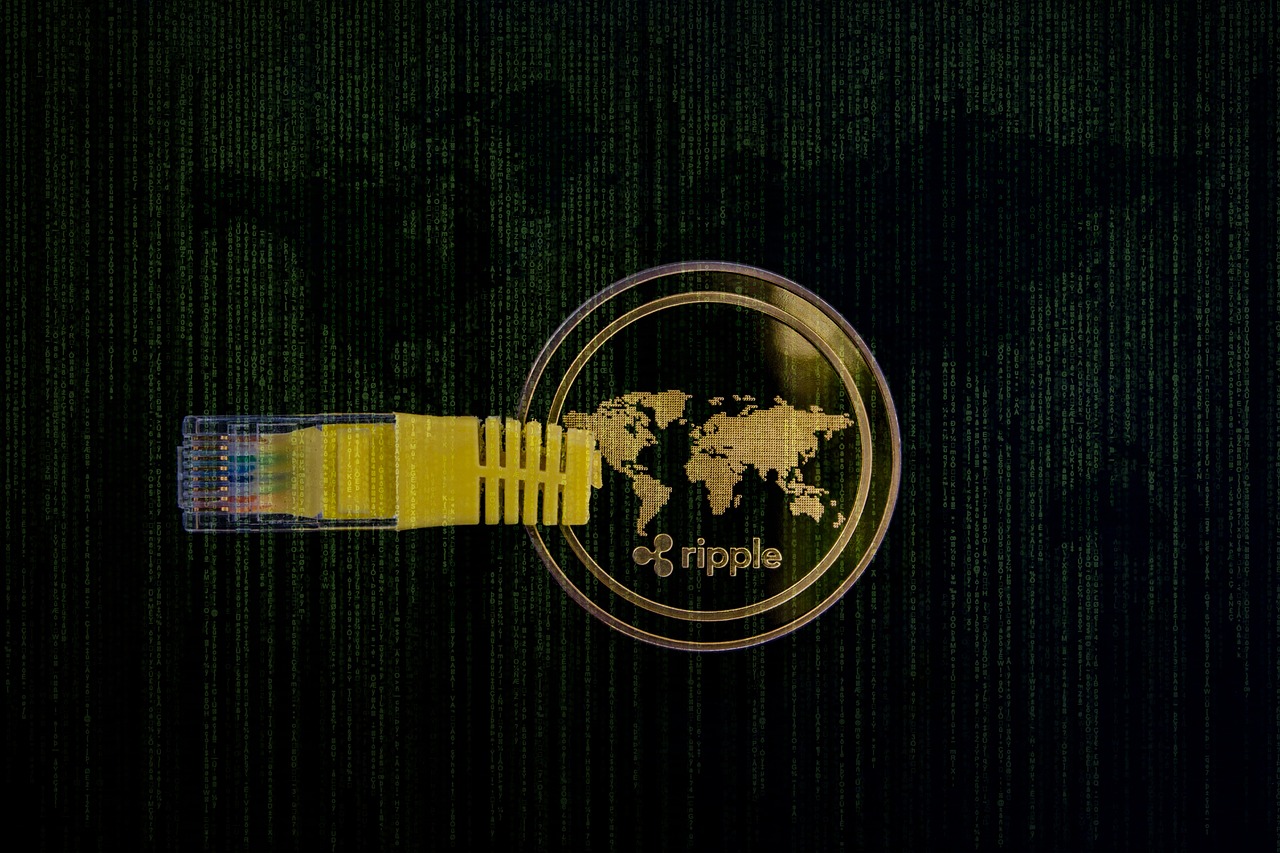
The Concept of Decentralization
Decentralization is a term that has gained significant traction, especially in the realm of technology and governance. But what does it really mean? In simple terms, decentralization refers to the distribution of authority and control away from a single central entity. Imagine a traditional bank where all financial transactions are controlled by a central authority. In contrast, a decentralized system operates on a network where no single party has complete control. This shift fundamentally alters how we perceive trust, transparency, and power dynamics in various contexts.
To better understand decentralization, let's break it down a bit further. In a centralized system, decision-making power resides with a single authority, leading to potential risks such as corruption, data breaches, and lack of accountability. On the other hand, decentralized systems distribute this power across multiple participants, creating a more resilient structure. Think of it like a spider web: if one strand breaks, the web still holds together. This analogy highlights the strength and flexibility of decentralized networks.
In the context of blockchain technology, decentralization is not just a feature; it's the backbone of the entire system. Blockchain operates on a peer-to-peer network where each participant (or node) maintains a copy of the entire ledger. This means that no single entity can manipulate the data without consensus from the majority. As a result, decentralization fosters a sense of trust among users, as everyone has access to the same information and can verify transactions independently.
Moreover, decentralization can significantly enhance transparency. In a decentralized environment, all transactions are recorded on a public ledger, making it nearly impossible to hide fraudulent activities. This level of transparency is a game-changer for industries that rely on trust, such as finance, healthcare, and supply chains. By removing intermediaries and allowing direct interactions, decentralization not only streamlines processes but also builds credibility with users.
However, it's essential to recognize that decentralization doesn't come without its challenges. The absence of a central authority can lead to complexities in governance and decision-making. For instance, who gets to make the rules in a decentralized network? How are disputes resolved? These questions are crucial as we navigate the landscape of decentralized technologies. Despite these challenges, the potential benefits of decentralization—such as increased security, user empowerment, and resilience—make it a compelling alternative to traditional centralized systems.
In summary, decentralization represents a fundamental shift in how we approach governance, trust, and technology. By distributing power and responsibility, decentralized systems have the potential to reshape traditional structures, leading to more equitable and transparent outcomes. As we continue to explore the implications of decentralization, it's clear that its impact will be felt across various sectors, paving the way for innovative solutions and new paradigms.
- What is decentralization? Decentralization is the distribution of authority and control away from a central entity, allowing for more equitable power dynamics.
- How does decentralization enhance security? By distributing data across multiple nodes, decentralization minimizes the risk of data breaches and cyberattacks.
- What are the challenges of decentralization? Key challenges include scalability issues and complexities in governance.
- What role do smart contracts play? Smart contracts automate processes and facilitate decentralized transactions by executing agreements directly in code.
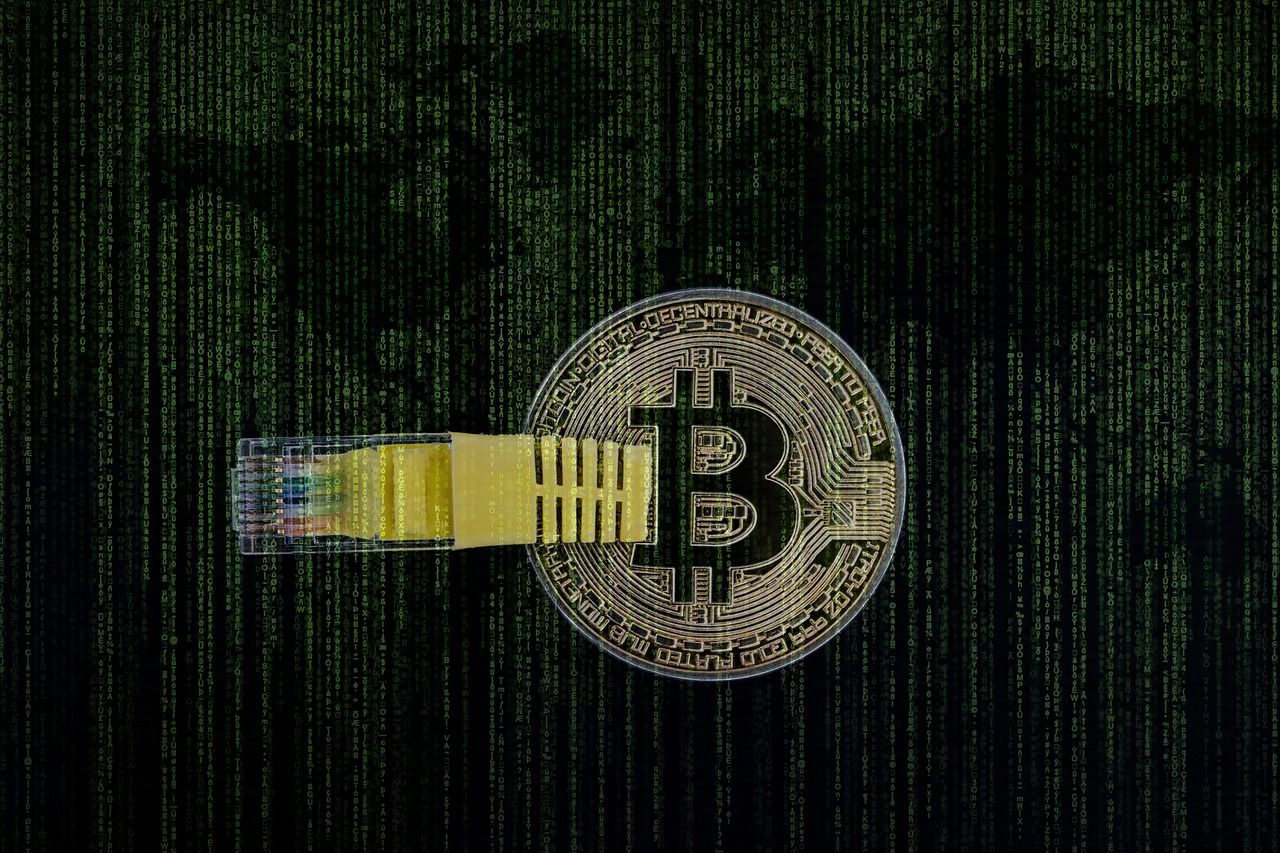
Benefits of Decentralization
Decentralization is like a breath of fresh air in the often-stifling world of traditional systems. Imagine a world where power is not concentrated in the hands of a few but shared among many. That's what decentralization offers, and it's not just a pipe dream—it's a reality brought to life by blockchain technology. One of the most compelling benefits of decentralization is enhanced security. In a decentralized network, data isn't stored in a single location but is distributed across multiple nodes. This means that if one node is compromised, the others remain intact, significantly minimizing the risk of data breaches and cyberattacks.
Moreover, decentralization fosters increased transparency. In traditional systems, opacity can lead to mistrust and manipulation. However, with blockchain, every transaction is recorded on a public ledger, accessible to anyone. This transparency ensures that all parties involved can verify transactions independently, creating a level of trust that centralized systems often lack. Imagine being able to track the entire history of a product—from its origin to your hands—without a middleman. That's the power of decentralization!
Another significant advantage is improved user control. In a decentralized ecosystem, users are not mere subjects of a centralized authority; instead, they are empowered to manage their data and transactions. Think of it as owning your own digital identity rather than renting it from a service provider. This shift in power dynamics allows individuals to have more say in how their information is used, thereby enhancing their autonomy and privacy.
In summary, the benefits of decentralization can be encapsulated in three key areas:
- Enhanced Security: Distributed data minimizes risks associated with breaches.
- Increased Transparency: Public ledgers promote trust and accountability.
- User Empowerment: Individuals gain control over their own data.
As we delve deeper into the world of blockchain, it's essential to recognize how these benefits can reshape not just technology but entire industries. By removing intermediaries and fostering a more equitable system, decentralization stands to revolutionize the way we interact with digital assets and each other.
- What is decentralization?
Decentralization is the distribution of authority and control away from a central entity, allowing for a more democratic and resilient system. - How does decentralization enhance security?
By distributing data across multiple nodes, it reduces the risk of data breaches and cyberattacks, ensuring greater protection for users. - What industries benefit from decentralization?
Industries such as finance, healthcare, and supply chain management are exploring decentralization through blockchain technology to improve efficiency and accountability.

Enhanced Security
One of the standout features of decentralization in blockchain technology is its ability to enhance security dramatically. Imagine a fortress where instead of one large gate, there are multiple small entrances scattered throughout. Each entrance represents a node in the blockchain network, and together they create a robust defense against potential intruders. By distributing data across numerous nodes, blockchain minimizes the risk of data breaches and cyberattacks, ensuring greater protection for users.
With traditional centralized systems, a single point of failure can lead to catastrophic outcomes. If a hacker breaches the central server, they can access and manipulate vast amounts of data. In contrast, decentralized networks operate on a principle of redundancy and distribution. Even if one node gets compromised, the rest of the network remains intact and operational. This inherent design makes it significantly more challenging for malicious actors to execute successful attacks.
Moreover, the cryptographic techniques used in blockchain technology further bolster security. Each transaction is encrypted and linked to the previous one, forming a secure chain of blocks. This means that any attempt to alter a single piece of data would require an enormous amount of computational power to override the entire chain. In essence, it’s like trying to change a single word in a book that has been printed in thousands of copies; you would have to rewrite every single copy to make that change.
In addition to these security measures, decentralized systems also benefit from increased data integrity. Because information is stored across multiple nodes, it becomes exceedingly difficult for any one entity to manipulate or falsify data. This tamper-proof nature of blockchain ensures that users can trust the information they receive, whether it’s in the context of financial transactions or personal data management. Furthermore, the transparency of blockchain allows users to verify transactions independently, adding an extra layer of reassurance.
Lastly, the resilience of decentralized systems against attacks cannot be overstated. Unlike centralized systems that can be brought down by a single targeted attack, decentralized networks can continue to function even when parts of the system are under threat. This resilience is akin to a flock of birds that can scatter and regroup; even if some are targeted, the flock as a whole remains intact and can continue its journey.
In summary, enhanced security through decentralization is one of the most compelling reasons for the growing adoption of blockchain technology. It not only protects users from external threats but also fosters a culture of trust and integrity within the digital landscape.
- What is decentralization in blockchain? Decentralization in blockchain refers to the distribution of authority and control away from a central entity, allowing for greater security and user empowerment.
- How does decentralization enhance security? By distributing data across multiple nodes, decentralization minimizes the risk of data breaches and makes it difficult for malicious actors to alter information.
- What is data integrity in blockchain? Data integrity in blockchain ensures that information remains tamper-proof and trustworthy, making it challenging for anyone to manipulate data.
- Why are decentralized systems more resilient to attacks? Decentralized systems can continue functioning even if parts of the network are compromised, unlike centralized systems that can be taken down by a single attack.

Data Integrity
When we talk about in the context of blockchain, we're diving into a realm where trust and security coexist seamlessly. Imagine a digital fortress where every piece of information is locked away, and only those with the right keys can access it. This is precisely what decentralization achieves. By distributing data across a network of nodes, blockchain technology creates a system that is incredibly challenging for malicious actors to breach.
One of the standout features of blockchain is its immutability. Once data is recorded on the blockchain, altering it is nearly impossible without consensus from the network. This is akin to writing in ink on a stone tablet—once it’s there, it's there for good! This immutability fosters a sense of trust among users, as they can be confident that the information they see is the same as what was originally recorded.
Furthermore, the decentralized nature of blockchain means that no single entity has control over the entire system. This distribution of power not only enhances security but also contributes to data integrity. If one node is compromised, the rest of the network remains intact, preserving the overall integrity of the data. To illustrate this, consider the following:
| Centralized System | Decentralized System |
|---|---|
| Single point of failure | Distributed nodes reduce risk |
| Data can be altered by administrators | Consensus required to change data |
| Higher risk of data breaches | Increased security through redundancy |
In essence, blockchain’s approach to data integrity ensures that information remains trustworthy and tamper-proof. This is crucial not only for individuals but also for organizations that rely on accurate data for decision-making. Without data integrity, the very foundation of trust crumbles, leading to potential chaos in data management.
As we move forward in this digital age, the importance of maintaining data integrity cannot be overstated. Organizations across various sectors are beginning to recognize that adopting blockchain technology is not just a trend; it's a necessary evolution. By leveraging the principles of decentralization, they can safeguard their data and maintain the trust of their users.
- What is data integrity? Data integrity refers to the accuracy and consistency of data over its lifecycle. In blockchain, it ensures that information remains unaltered and trustworthy.
- How does blockchain ensure data integrity? Blockchain ensures data integrity through its decentralized and immutable nature, requiring consensus for any changes to be made.
- Why is data integrity important? Data integrity is crucial for maintaining trust among users and organizations, ensuring that decisions are based on accurate and reliable information.
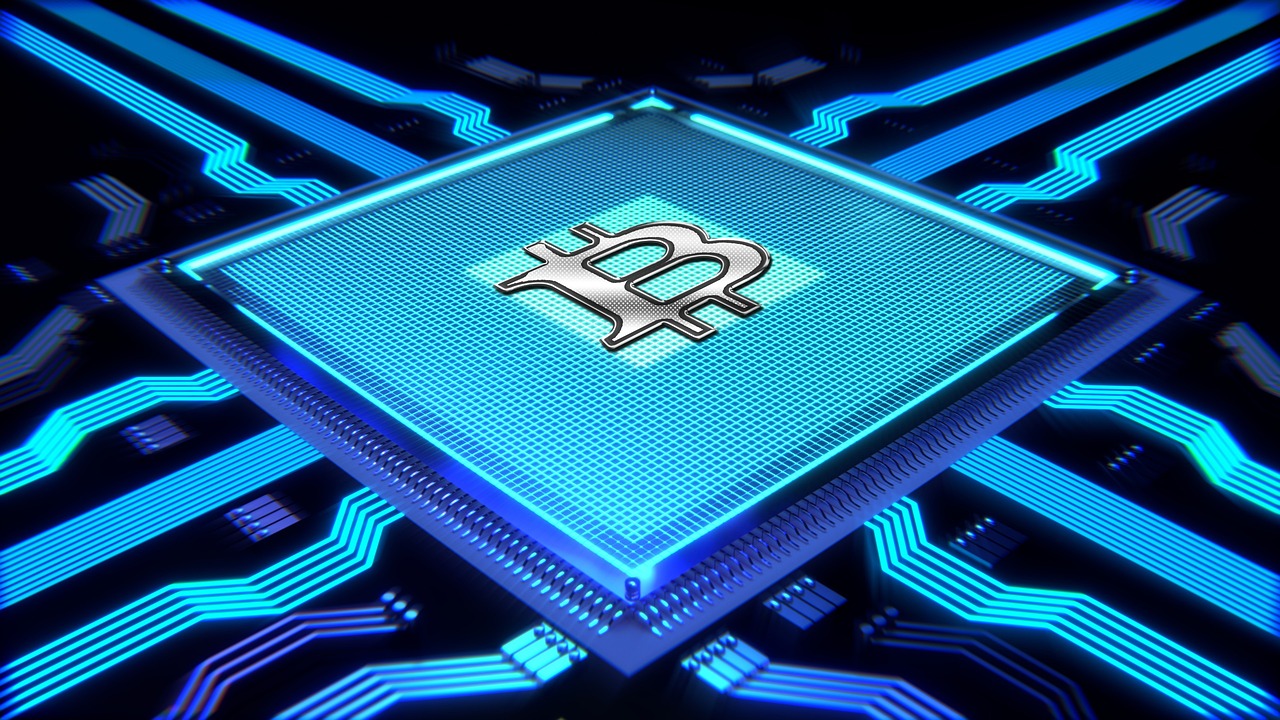
Resilience Against Attacks
One of the most compelling aspects of decentralization in blockchain technology is its remarkable . Imagine a fortress with multiple towers instead of just one central keep; if one tower is compromised, the others remain standing strong. This analogy perfectly encapsulates how decentralized networks operate. In a traditional centralized system, if a hacker breaches the main server, they can wreak havoc on the entire system, stealing data or disrupting services. However, in a decentralized network, data is distributed across numerous nodes, making it incredibly challenging for attackers to target and take down the entire system.
To further illustrate this point, consider the following benefits of decentralization in enhancing resilience:
- Distributed Data Storage: With data spread across various nodes, there is no single point of failure. Even if one node goes offline or is attacked, the rest of the network continues to function smoothly.
- Consensus Mechanisms: Blockchain employs consensus algorithms, such as Proof of Work or Proof of Stake, that require a majority of nodes to agree on any changes. This means that even if some nodes are compromised, the integrity of the data remains intact.
- Transparency and Auditability: The transparent nature of blockchain allows for real-time auditing of transactions. If suspicious activity is detected, it can be addressed swiftly, minimizing potential damage.
Moreover, decentralized systems are inherently more difficult to attack. Cybercriminals often target centralized systems because they can gain access to vast amounts of data with a single successful breach. In contrast, decentralized networks require attackers to infiltrate multiple nodes, which exponentially increases the complexity and resources needed for a successful attack.
In conclusion, the resilience against attacks offered by decentralized blockchain systems not only enhances security but also builds trust among users. As more organizations recognize the importance of safeguarding their data, the adoption of decentralized solutions will likely continue to grow, leading to a more secure digital landscape.
- What is decentralization in blockchain? Decentralization in blockchain refers to the distribution of authority and control away from a central entity, allowing for a more democratic and transparent system.
- How does decentralization enhance security? By spreading data across multiple nodes, decentralization minimizes the risk of data breaches, making it harder for attackers to compromise the entire system.
- What are the challenges of decentralization? Some challenges include scalability issues and governance complexities that can hinder the widespread adoption of decentralized systems.
- What role do smart contracts play in decentralization? Smart contracts automate processes and facilitate transactions within decentralized networks, enhancing efficiency and trust.

User Empowerment
Decentralization is not just a technical shift; it's a revolutionary movement that fundamentally changes the way we think about control and authority in the digital realm. In a world where data breaches and privacy concerns are rampant, through blockchain technology is like handing the keys back to the rightful owners—the users themselves. Imagine a scenario where you are in complete control of your own data, deciding who gets access to it and when. This isn't just a dream; it's the reality that decentralization brings to the table.
At its core, decentralization shifts the power dynamics from centralized entities—like banks, social media platforms, and cloud storage services—directly into the hands of individuals. Users no longer have to rely on third parties to manage their assets or data. Instead, they can engage in transactions and interactions directly with one another, fostering a sense of autonomy that was previously unattainable. This shift is akin to moving from a traditional bank, where you must follow their rules, to a peer-to-peer lending platform where you make your own decisions.
In a decentralized environment, users enjoy several key benefits:
- Ownership of Data: Users have full control over their personal information. They can choose to share it selectively, ensuring that their privacy is respected and protected.
- Direct Transactions: By eliminating intermediaries, users can engage in transactions without incurring hefty fees or delays, making processes not only faster but also more cost-effective.
- Transparency: With blockchain's immutable ledger, users can verify transactions independently, increasing trust and accountability within the ecosystem.
This empowerment is particularly transformative in sectors like finance, where traditional models often exclude large segments of the population. By utilizing decentralized finance (DeFi) platforms, individuals can access a variety of financial services—like lending, borrowing, and trading—without needing a bank account or a credit score. It's like having a financial toolbox at your disposal, ready to use whenever you need it.
Furthermore, the rise of self-sovereign identity systems allows users to manage their own identities without relying on centralized authorities. This means you can prove your identity or credentials without handing over your data to a corporation that might misuse it. It’s a game-changer for privacy advocates and anyone who values their personal information.
However, with great power comes great responsibility. Users must be educated about how to manage their assets and data securely. The decentralized landscape can be overwhelming at first, but as more people become familiar with the tools and technologies available, the potential for empowerment grows exponentially. Just like learning to ride a bike, it might be daunting at first, but once you get the hang of it, the freedom it provides is exhilarating.
In conclusion, user empowerment through decentralization is not just about technology; it's about redefining relationships in our digital lives. It’s about creating a world where individuals are in control, where trust is built through transparency, and where everyone has the opportunity to participate in the economy on their own terms. As we continue to explore the potential of blockchain technology, one thing is clear: the future is decentralized, and it’s here to empower us all.
- What is decentralization? Decentralization refers to the distribution of authority and control away from a central entity, allowing for greater user autonomy.
- How does decentralization empower users? It grants users control over their data, enables direct transactions, and increases transparency in interactions.
- What are the benefits of decentralized finance (DeFi)? DeFi platforms remove intermediaries, reduce costs, and provide broader access to financial services.
- What is self-sovereign identity? It allows individuals to manage their own identities without relying on centralized authorities, enhancing privacy and control.

Challenges of Decentralization
While decentralization in blockchain technology brings a myriad of benefits, it is not without its challenges. One major hurdle is scalability. As more users join a decentralized network, the system can become overwhelmed. Imagine a bustling highway during rush hour; the more cars that join, the slower the traffic moves. Similarly, blockchain networks can struggle to process a high volume of transactions efficiently. This limitation can hinder the widespread adoption of decentralized applications, as users expect quick and seamless experiences.
Another significant challenge is the complexity of governance. In a decentralized system, decision-making is often distributed among various stakeholders, which can lead to fragmentation. Establishing a cohesive governance model becomes crucial yet complicated. For instance, consider a community trying to make a decision on a new park. If everyone has a say but no clear leader, the process can become chaotic and time-consuming. This fragmentation in decentralized networks can result in slow responses to issues and disagreements among participants.
Moreover, the lack of a central authority can lead to accountability issues. In traditional systems, a central entity is responsible for maintaining order and addressing grievances. However, in a decentralized environment, if something goes wrong, it can be challenging to pinpoint who is responsible. This ambiguity may deter potential users or organizations from fully embracing blockchain technology, fearing potential risks without clear recourse.
To illustrate these challenges further, let's take a look at a table summarizing the main obstacles faced by decentralized systems:
| Challenge | Description |
|---|---|
| Scalability | Difficulty in processing a high volume of transactions efficiently. |
| Governance Complexity | Fragmented decision-making leading to slow responses and disagreements. |
| Accountability Issues | Lack of a central authority makes it hard to determine responsibility. |
Despite these challenges, the potential of decentralization remains vast. Ongoing research and development in the blockchain space aim to address these hurdles, paving the way for a more robust and efficient decentralized future. As we continue to explore and innovate, it's essential to recognize these challenges and work collaboratively to overcome them.
- What is decentralization? Decentralization refers to the distribution of authority and control away from a central entity, allowing for greater user autonomy and security.
- What are the main challenges of decentralization? The primary challenges include scalability issues, governance complexities, and accountability problems.
- How does decentralization improve security? By distributing data across multiple nodes, decentralization reduces the risk of data breaches and cyberattacks.
- What is the future of decentralization in blockchain? The future looks promising as ongoing advancements aim to tackle existing challenges, enhancing the potential for widespread adoption.

Scalability Issues
Scalability is often regarded as one of the most pressing challenges facing decentralized networks today. As the popularity of blockchain technology surges, the need for systems that can handle a growing number of transactions without compromising speed or efficiency becomes paramount. Imagine a crowded highway during rush hour; if too many vehicles try to merge onto the same road, traffic slows down, and frustration builds. This analogy perfectly captures the current state of many blockchain networks.
Currently, most blockchain solutions struggle with transaction throughput. For instance, Bitcoin can process around 7 transactions per second, while Ethereum manages approximately 30. In contrast, traditional payment systems like Visa can handle over 24,000 transactions per second! This stark difference highlights the scalability gap that decentralized systems must bridge to compete effectively in the digital economy.
Several factors contribute to the scalability issues in blockchain technology:
- Block Size Limitations: Each block in a blockchain has a fixed size, which limits the number of transactions that can be included in a single block. When the demand for transactions exceeds this limit, users experience delays.
- Network Congestion: As more users join the network, the chances of congestion increase. High demand can lead to longer confirmation times and higher transaction fees, making the system less user-friendly.
- Consensus Mechanisms: Many blockchains rely on proof-of-work or proof-of-stake mechanisms that require significant computational resources. This not only slows down transaction processing but also raises concerns about energy consumption.
To tackle these scalability challenges, developers and researchers are actively exploring various solutions. Some of the most promising approaches include:
- Layer 2 Solutions: Technologies such as the Lightning Network for Bitcoin or Plasma for Ethereum aim to process transactions off the main blockchain, reducing congestion and increasing speed.
- Sharding: This method involves breaking the blockchain into smaller, more manageable pieces (shards) that can process transactions simultaneously, thus increasing overall throughput.
- Improved Consensus Algorithms: Newer consensus mechanisms like Delegated Proof of Stake (DPoS) or Proof of Authority (PoA) offer faster transaction validation times compared to traditional methods.
Despite the ongoing innovations, achieving true scalability without sacrificing the core principles of decentralization remains a complex puzzle. The quest for a balance between speed, security, and decentralization is akin to walking a tightrope; one misstep could jeopardize the entire structure. As the blockchain ecosystem continues to evolve, addressing scalability issues will be crucial for the widespread adoption and success of decentralized technologies.
- What is scalability in blockchain? Scalability refers to the capability of a blockchain network to handle an increasing number of transactions efficiently.
- Why is scalability important? Scalability is essential because it determines how well a blockchain can accommodate growth and user demand without sacrificing performance.
- What are some solutions to scalability issues? Solutions include layer 2 technologies, sharding, and improved consensus algorithms.
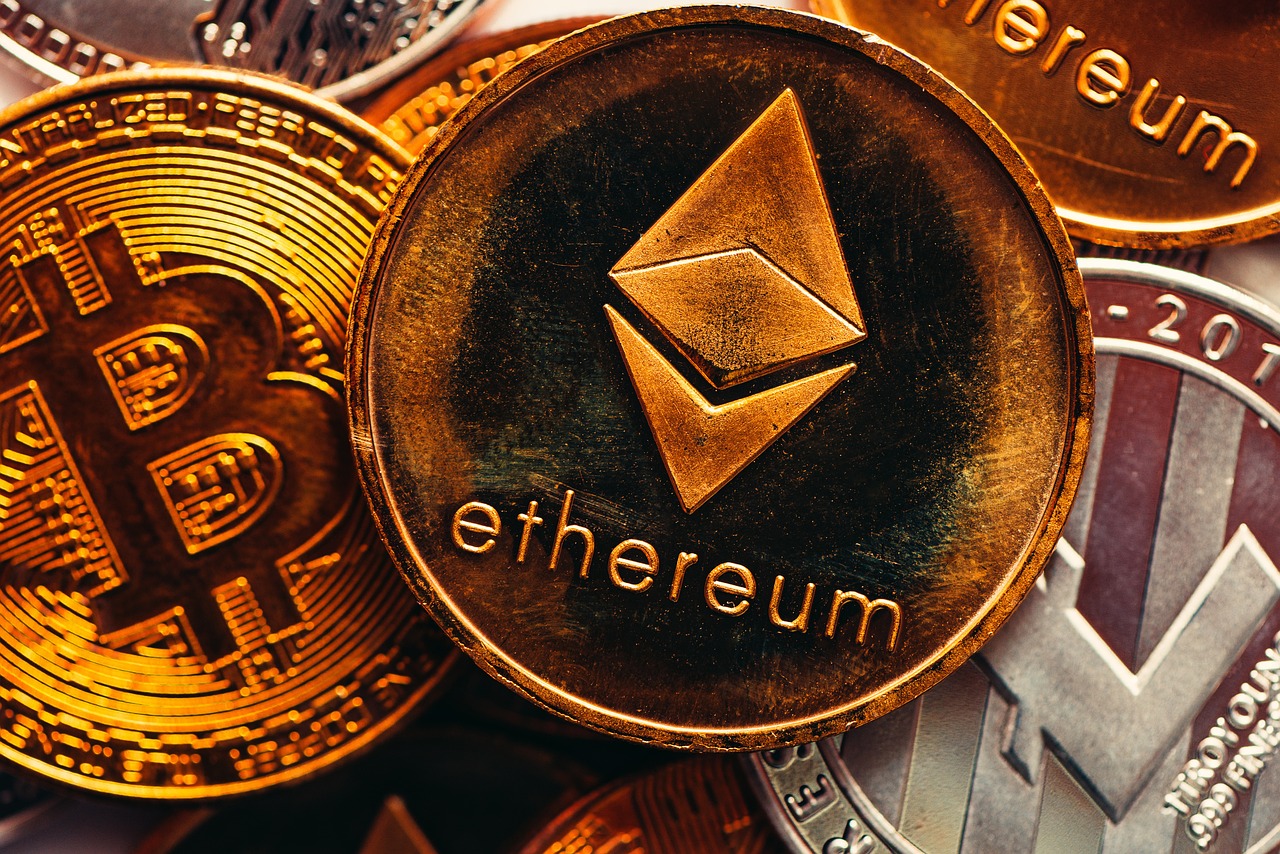
Governance Complexities
When we think about decentralization, we often imagine a world where power is distributed evenly, and decisions are made collectively. However, the reality of governance in decentralized systems is often more complicated than it seems. Unlike traditional centralized systems, where a single entity holds the reins, decentralized networks bring together a multitude of stakeholders, each with their own interests and perspectives. This fragmentation can lead to significant governance challenges that need to be addressed for the success of blockchain initiatives.
One of the primary issues is the lack of clear decision-making authority. In a decentralized environment, who gets to make the big calls? With no central authority, governance models must be established to facilitate decision-making processes. This often leads to the creation of complex frameworks that can be difficult to navigate, especially for new participants. For example, in many blockchain projects, decisions are made through consensus mechanisms, which can vary widely in their effectiveness and efficiency.
Furthermore, the diversity of stakeholders can result in conflicting interests. Imagine a group project where everyone has a different vision for the end product; it can quickly turn into chaos. In the blockchain context, this can manifest in disagreements over protocol upgrades, funding allocations, and even the direction of the project itself. The challenge lies in finding a way to balance these interests while still moving forward effectively.
To illustrate the complexities of governance in decentralized systems, consider the following points:
- Consensus Mechanisms: Different blockchains use various consensus mechanisms (like Proof of Work or Proof of Stake), which can affect how decisions are made and who gets to participate in the governance process.
- Voting Systems: Some decentralized networks implement voting systems that can be susceptible to manipulation, especially if a small number of users hold a significant amount of tokens.
- Community Engagement: Active engagement from the community is crucial, but it can be challenging to mobilize a diverse group of stakeholders to participate in governance discussions.
Moreover, the rapid pace of technological advancements in blockchain can outstrip the capacity of governance structures to adapt. As new features and capabilities are introduced, existing governance models may become obsolete, leading to confusion and inefficiency. This is why ongoing discussions and adaptations in governance frameworks are essential to ensure that they remain relevant and effective.
In conclusion, while decentralization holds great promise for creating more equitable and democratic systems, the governance complexities it introduces cannot be overlooked. Addressing these challenges requires innovative thinking, active community participation, and a willingness to adapt. As the blockchain landscape continues to evolve, so too must our approaches to governance, ensuring that they can meet the needs of all stakeholders involved.
Here are some common questions regarding governance complexities in decentralized systems:
- What is the primary challenge of governance in decentralized networks? The primary challenge is the lack of a clear decision-making authority, leading to fragmented governance structures.
- How do consensus mechanisms affect governance? Different consensus mechanisms determine how decisions are made and who can participate in governance, impacting the overall effectiveness of the system.
- Why is community engagement important in decentralized governance? Active community engagement ensures diverse perspectives are considered, helping to create a more balanced and representative governance model.
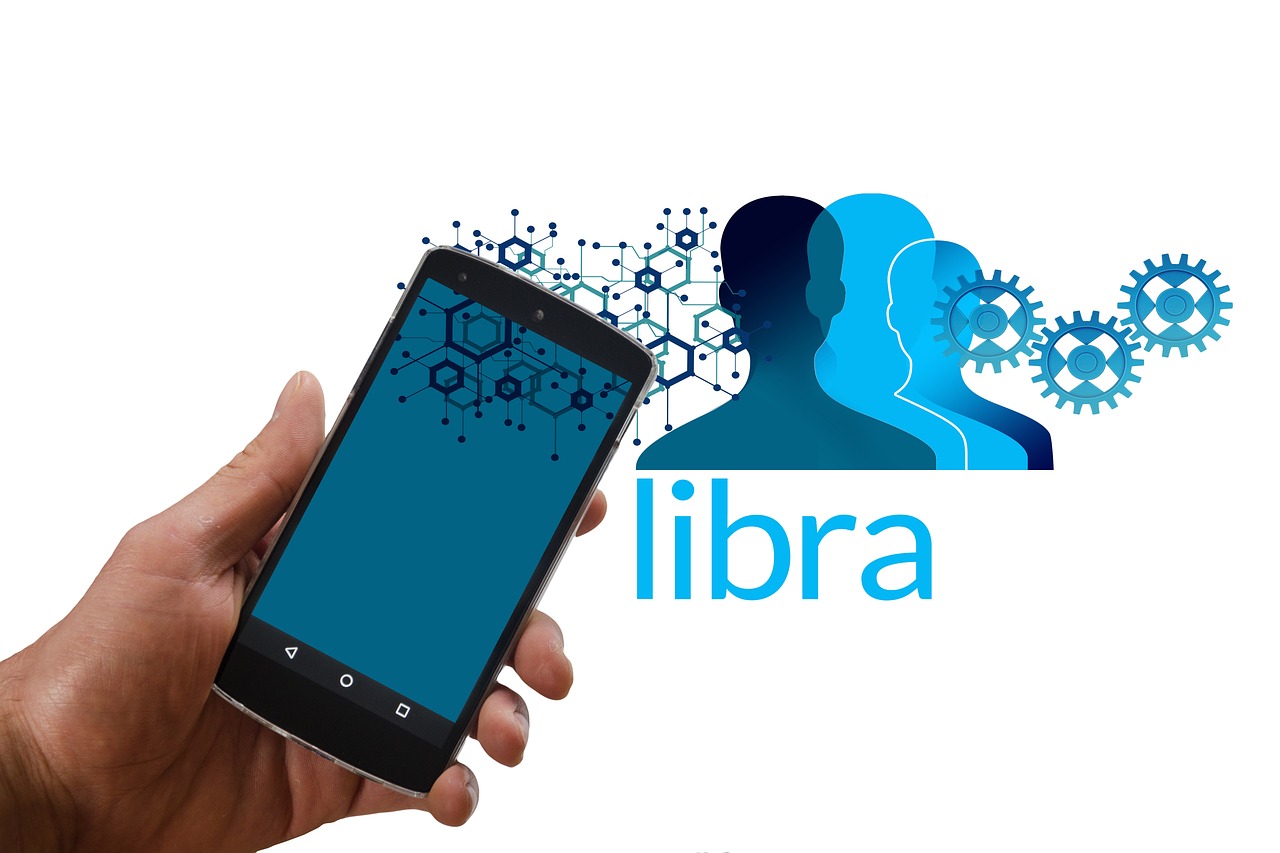
The Role of Smart Contracts
Smart contracts are one of the most exciting innovations born from blockchain technology. Imagine having a contract that automatically executes itself when certain conditions are met—no lawyers, no lengthy negotiations, just pure efficiency. This is the essence of smart contracts: they are self-executing agreements with the terms directly written into code. This means that once the contract is deployed on the blockchain, it operates independently, reducing the need for intermediaries and minimizing the risk of disputes.
But how do these digital agreements work? When the predefined conditions are satisfied, the smart contract triggers an action, such as transferring funds or updating records. For instance, in a real estate transaction, a smart contract could automatically transfer ownership of a property once the buyer has sent the agreed-upon payment. This not only speeds up the process but also ensures that all parties adhere to the terms without the need for trust, as the blockchain's transparency guarantees that everyone can see the contract's status.
Moreover, smart contracts can be programmed to execute complex transactions involving multiple parties. They can handle various tasks, such as:
- Automating payment processes
- Managing supply chain logistics
- Facilitating peer-to-peer transactions
- Creating decentralized applications (dApps)
One of the significant advantages of smart contracts is their ability to enhance transparency. Since all transactions are recorded on the blockchain, it becomes virtually impossible to alter the contract once it's in place. This tamper-proof feature ensures that all parties have access to the same information, thereby reducing the potential for fraud and misunderstandings.
However, while smart contracts offer tremendous potential, they are not without their challenges. Issues such as coding errors, lack of legal recognition, and the need for clear and comprehensive contract terms can pose risks. A poorly written smart contract can lead to unintended consequences, just as a vague traditional contract can. Therefore, it is crucial for developers to ensure that the code is thoroughly tested and that the terms are explicit to avoid pitfalls.
In conclusion, smart contracts are reshaping the way we think about agreements and transactions. They bring forth a new era of automation, efficiency, and transparency that can revolutionize various industries. As we continue to explore the capabilities of blockchain technology, the role of smart contracts will undoubtedly expand, paving the way for innovative solutions that challenge traditional systems.
- What are smart contracts? Smart contracts are self-executing contracts with the terms directly written into code, which automatically execute when specified conditions are met.
- How do smart contracts work? They operate on blockchain technology, executing actions automatically once the predefined conditions are satisfied.
- What are the benefits of using smart contracts? Smart contracts offer enhanced transparency, reduced need for intermediaries, and increased efficiency in executing agreements.
- Are smart contracts legally binding? The legal status of smart contracts varies by jurisdiction, and while they can be enforceable, it's essential to ensure clarity and compliance with local laws.

Decentralization in Various Industries
Decentralization is not just a buzzword; it's a transformative force reshaping the landscape of various industries. From finance to healthcare, the principles of decentralization are being harnessed to create more efficient, transparent, and user-centric systems. Imagine a world where you have complete control over your data and transactions—this is not just a dream, but a reality made possible by blockchain technology.
In the financial sector, we see the rise of Decentralized Finance (DeFi), which is revolutionizing how we think about money. Traditional banking systems often rely on intermediaries, creating bottlenecks and inefficiencies. With DeFi, users can engage in financial transactions directly with one another, bypassing the need for banks. This shift not only empowers individuals but also opens up access to financial services for those who have been historically underserved.
Another industry experiencing significant change is healthcare. Decentralization in healthcare can lead to improved patient outcomes through enhanced data sharing and interoperability. By utilizing blockchain, patient records can be securely stored and easily accessed by authorized personnel, ensuring that critical information is available when needed. This not only improves the efficiency of care but also enhances patient privacy and security.
Furthermore, the supply chain industry is witnessing a paradigm shift thanks to decentralization. Traditional supply chains often lack transparency, making it difficult to trace the origin of products or verify their authenticity. Blockchain technology provides a solution by enabling real-time tracking of goods from manufacturer to consumer. This transparency fosters trust among stakeholders and reduces fraud, ultimately leading to a more efficient supply chain.
To illustrate the impact of decentralization across these industries, consider the following table:
| Industry | Impact of Decentralization |
|---|---|
| Finance | Elimination of intermediaries, increased access to financial services, and lower transaction fees. |
| Healthcare | Improved data sharing, enhanced patient privacy, and better patient outcomes. |
| Supply Chain | Increased transparency, reduced fraud, and enhanced efficiency in tracking goods. |
As we look to the future, the implications of decentralization are profound. Industries are not only adopting blockchain technology but are also rethinking their entire operational frameworks to embrace this new paradigm. The potential for increased efficiency, security, and user empowerment is enormous, and as more sectors begin to explore these avenues, we can expect to see significant shifts in how business is conducted.
- What is decentralization? Decentralization refers to the distribution of authority and control away from a central entity, allowing for greater user autonomy and security.
- How does decentralization benefit industries? It enhances security, improves transparency, and grants users more control over their data and transactions.
- What are some challenges associated with decentralization? Scalability issues and governance complexities can hinder the widespread adoption of decentralized systems.
- How is blockchain used in supply chain management? Blockchain enhances transparency and traceability, allowing for real-time tracking of goods and reducing fraud.
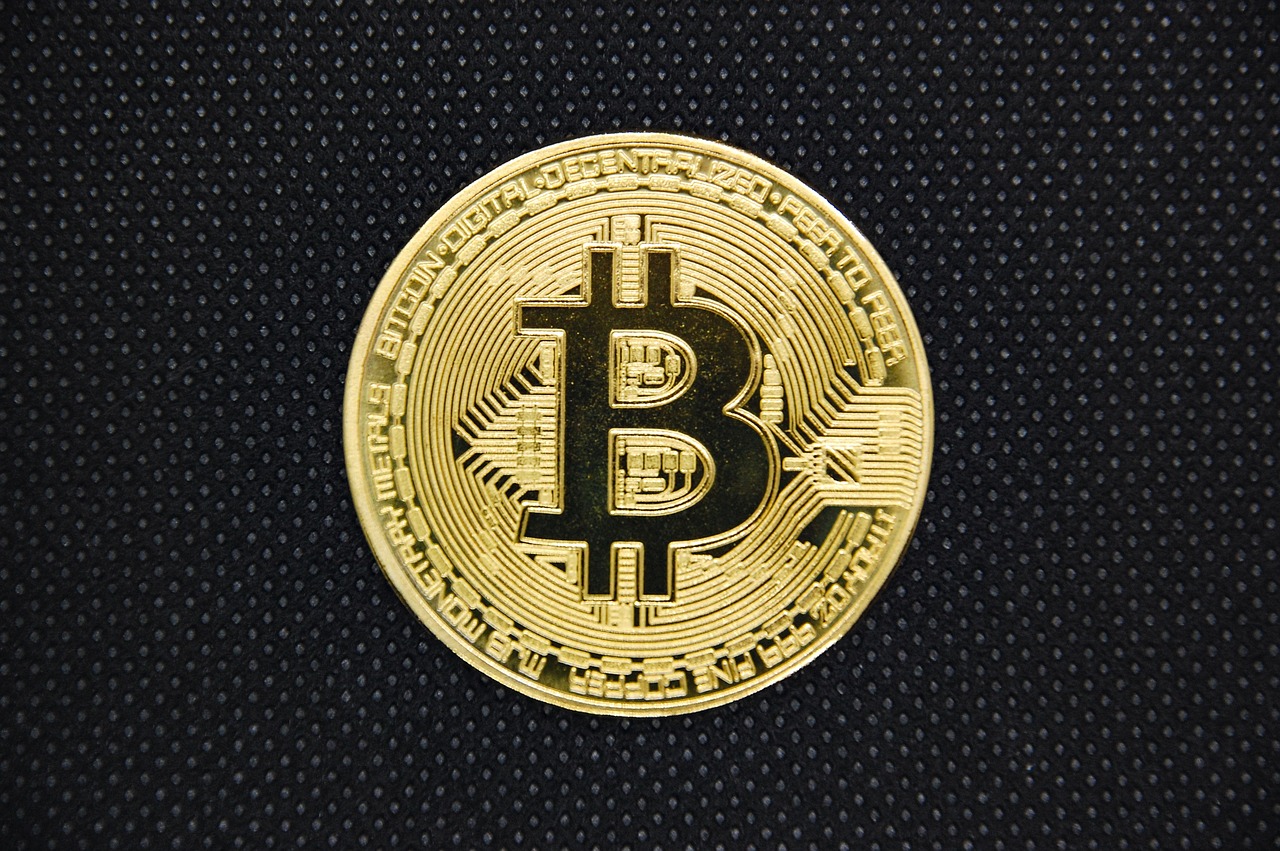
Decentralized Finance (DeFi)
Decentralized Finance, commonly known as DeFi, is not just a buzzword; it’s a revolutionary shift in how we think about and interact with financial systems. Imagine a world where traditional banks and intermediaries are no longer necessary, where your financial transactions are executed seamlessly and transparently, all thanks to blockchain technology. DeFi is making this dream a reality by leveraging smart contracts and decentralized networks to create an open and permissionless financial ecosystem.
At its core, DeFi aims to provide a more inclusive financial system that eliminates barriers to entry. Traditionally, access to financial services has been limited by geographic, economic, and institutional factors. However, with DeFi, anyone with an internet connection can access a wide range of financial products and services, from lending and borrowing to trading and investing. This democratization of finance is akin to giving everyone a key to a previously locked vault, allowing them to participate in the global economy.
One of the most significant advantages of DeFi is the removal of intermediaries. In traditional finance, intermediaries such as banks and brokers facilitate transactions, often charging hefty fees and taking their time to process requests. In contrast, DeFi platforms utilize smart contracts—self-executing contracts with the terms of the agreement directly written into code. This not only speeds up transactions but also reduces costs, making financial services more accessible to everyone.
Furthermore, DeFi platforms operate on a decentralized network, which means that they are not controlled by any single entity. This decentralization enhances transparency and reduces the risk of fraud. Users can verify transactions on the blockchain, ensuring that all activities are recorded and immutable. It’s like having a public ledger where everyone can see the truth, eliminating the need for trust in a central authority.
However, it's essential to recognize that while DeFi is filled with potential, it also comes with risks. The technology is still relatively new, and vulnerabilities in smart contracts can lead to hacks and losses. Additionally, the lack of regulation can create a Wild West atmosphere, where scams and fraudulent schemes can thrive. Therefore, users must exercise caution and conduct thorough research before engaging with DeFi platforms.
In summary, DeFi is transforming the financial landscape by providing a more accessible, efficient, and transparent alternative to traditional finance. It empowers users to take control of their financial destinies, making it a game-changer in the world of finance. As we continue to explore the potential of DeFi, it’s crucial to stay informed and aware of both its benefits and challenges.
- What is DeFi? DeFi stands for Decentralized Finance, which refers to financial services that operate on a decentralized network, eliminating the need for intermediaries.
- How does DeFi work? DeFi utilizes blockchain technology and smart contracts to automate and facilitate financial transactions without the need for traditional banks.
- What are the risks associated with DeFi? Risks include potential vulnerabilities in smart contracts, lack of regulation, and the possibility of scams and fraud.
- Can anyone use DeFi? Yes, anyone with an internet connection can access DeFi platforms and services, making it a more inclusive financial system.
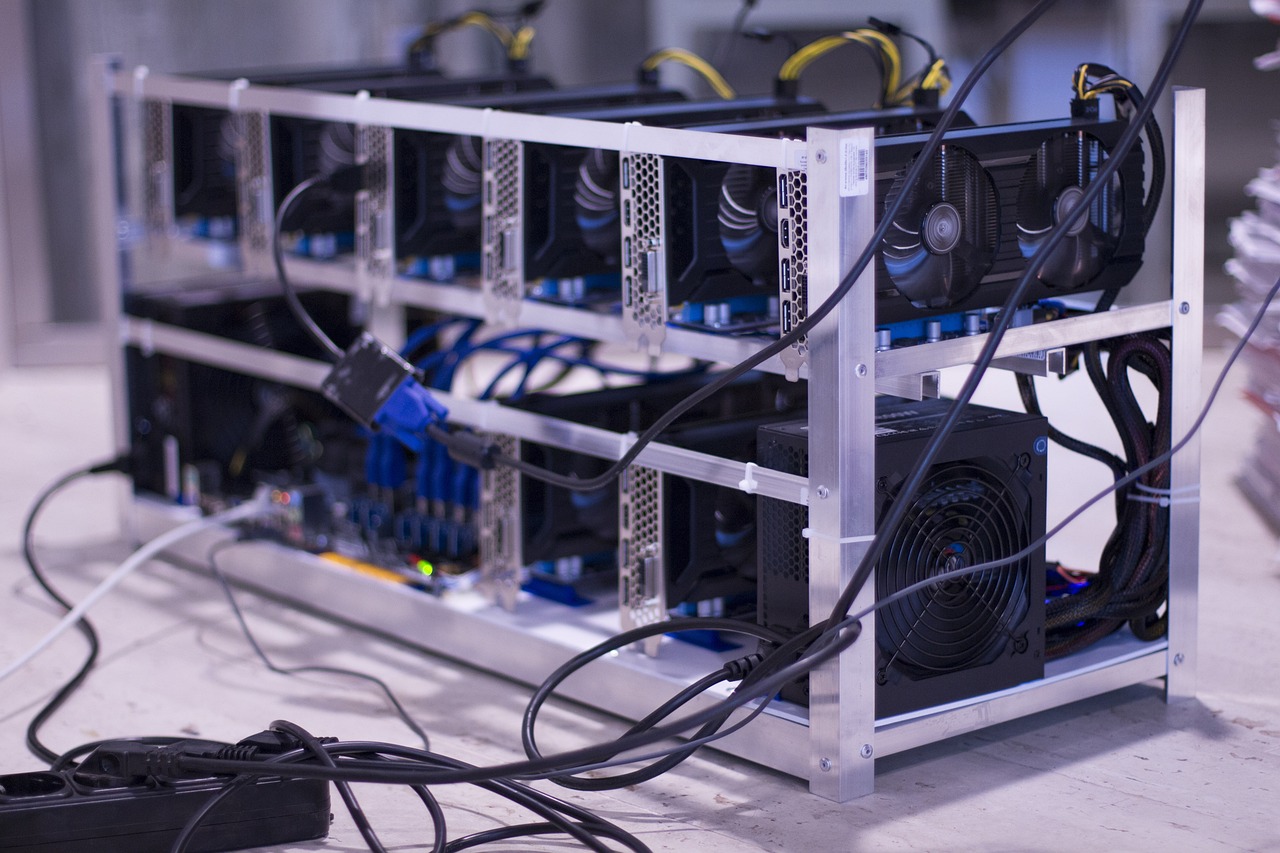
Blockchain in Supply Chain Management
In today's fast-paced world, where consumers demand transparency and efficiency, blockchain technology emerges as a game-changer in supply chain management. Imagine a system where every transaction, from the moment a product is manufactured to when it reaches the consumer, is recorded on an immutable ledger. This is precisely what blockchain offers—a transparent, secure, and efficient way to track products throughout their lifecycle. By leveraging this technology, companies can not only enhance their operational efficiency but also build trust with their customers by providing real-time data on product provenance.
One of the standout features of blockchain in supply chain management is its ability to improve traceability. For instance, if a food product is found to be contaminated, blockchain allows for swift identification of the source, enabling companies to isolate the problem and prevent further distribution of affected products. This level of traceability is invaluable in industries like food and pharmaceuticals, where safety is paramount. With blockchain, each participant in the supply chain—from manufacturers to retailers—can access the same data, ensuring everyone is on the same page and reducing the chances of misinformation.
Moreover, blockchain facilitates smart contracts, which automate various processes within the supply chain. These self-executing contracts can trigger actions such as payments or inventory updates based on pre-defined conditions. For example, a smart contract could automatically release payment to a supplier once goods are delivered and verified, eliminating the need for intermediaries and reducing transaction times. This not only streamlines operations but also minimizes the potential for disputes and fraud, as all parties have access to the same verified information.
The impact of blockchain extends beyond operational improvements; it also enhances accountability across the supply chain. By maintaining a permanent record of every transaction, companies can ensure compliance with regulations and standards, making audits easier and more transparent. This is particularly important in industries where regulatory compliance is strict, as it provides a clear trail of accountability and reduces the risk of non-compliance penalties.
To illustrate the practical applications of blockchain in supply chain management, consider the following table that outlines how different sectors are leveraging this technology:
| Industry | Application | Benefits |
|---|---|---|
| Food & Beverage | Tracking the origin of products | Enhanced safety, faster recalls |
| Pharmaceuticals | Verifying drug authenticity | Reduced counterfeit drugs, improved compliance |
| Retail | Streamlining inventory management | Reduced costs, improved efficiency |
In conclusion, the integration of blockchain technology into supply chain management is not just a trend; it's a necessary evolution. As businesses continue to face challenges related to transparency, traceability, and efficiency, blockchain offers a robust solution that addresses these issues head-on. By adopting this technology, companies can not only improve their operations but also enhance their reputation in an increasingly skeptical market. The future of supply chains is indeed decentralized, and those who embrace this change will undoubtedly lead the way.
- What is blockchain technology? Blockchain is a decentralized digital ledger that records transactions across many computers, ensuring that the record cannot be altered retroactively.
- How does blockchain improve supply chain management? It enhances traceability, accountability, and efficiency by providing a transparent and immutable record of all transactions.
- What are smart contracts? Smart contracts are self-executing contracts with the terms of the agreement directly written into code, automating processes within the blockchain.
- Can blockchain help in reducing fraud? Yes, by providing a transparent and immutable record, blockchain significantly reduces the chances of fraud in supply chains.
Frequently Asked Questions
- What is decentralization in blockchain?
Decentralization in blockchain refers to the distribution of authority and control away from a central entity. Unlike traditional systems where a single authority manages everything, decentralization allows multiple participants to share control, enhancing transparency and security.
- What are the main benefits of decentralization?
Decentralization offers several advantages, including enhanced security, increased transparency, and user empowerment. By spreading data across various nodes, it minimizes risks and gives users more control over their transactions and data.
- How does decentralization improve security?
Decentralization enhances security by distributing data across multiple nodes, making it much harder for malicious actors to compromise the system. This distribution reduces the risk of data breaches and cyberattacks, ensuring a safer environment for users.
- What challenges does decentralization face?
Despite its numerous benefits, decentralization faces challenges such as scalability issues and governance complexities. These obstacles can hinder the widespread adoption of blockchain technology and require ongoing efforts to address them.
- What role do smart contracts play in decentralization?
Smart contracts are self-executing agreements with terms directly written into code. They facilitate decentralized transactions by automating processes and ensuring that agreements are executed without the need for intermediaries, thereby enhancing efficiency.
- How is decentralization transforming industries?
Decentralization is reshaping various sectors, including finance, healthcare, and supply chain management. For instance, in decentralized finance (DeFi), users can access financial services without intermediaries, while in supply chains, blockchain improves transparency and traceability.










